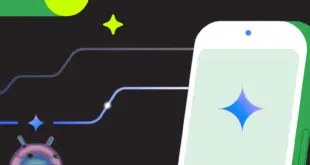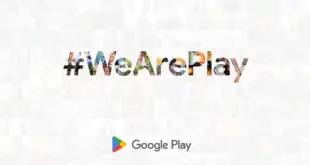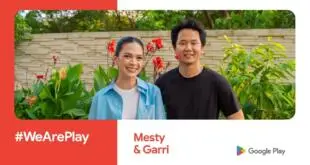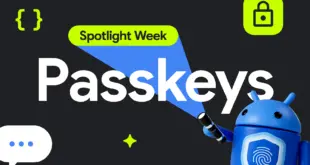No vuelva a escribir un adaptador RecyclerView. ¡Ni siquiera un ViewHolder!
- Residencia en Asociación de datos de Android
- Escrito en Kotlin
- Apoya Datos en tiempo real
- No es necesario escribir el adaptador
- No es necesario escribir ViewHolders
- No es necesario cambiar las clases del modelo.
- No es necesario notificar al adaptador cuando cambia el conjunto de datos
- Admite múltiples tipos de visualización de elementos
- Llamadas / oyentes opcionales
- Muy rápido, sin reflejos
- API súper fácil
- SDK de Android mínimo: 19
Configurar
Gradle
Agréguelo en su build.gradle raíz al final de los repositorios:
allprojects {
repositories {
...
maven { url 'https://jitpack.io' }
}
}
Agregue la dependencia al módulo build.gradle
// apply plugin: 'kotlin-kapt' // this line only for Kotlin projects
android {
...
dataBinding.enabled true
}
dependencies {
implementation 'com.github.RaviKoradiya:LiveAdapter:1.3.2-1608532016'
// kapt 'com.android.databinding:compiler:GRADLE_PLUGIN_VERSION' // this line only for Kotlin projects
}
Utilizar
Cree diseños para sus artículos con <layout> como root:
<layout xmlns:android="http://schemas.android.com/apk/res/android">
<data>
<variable name="item" type="com.github.RaviKoradiya:LiveAdapter.item.Header"/>
</data>
<TextView
android:layout_width="match_parent"
android:layout_height="wrap_content"
android:text="@{item.text}"/>
</layout>
Es importante que todos los tipos de elementos tengan el mismo nombre de variable, en este caso “artículo”. Este nombre se pasa al constructor del adaptador como BR.variableName, en este caso BR.item:
ObservableList o lista simple
// Java
new LiveAdapter(listOfItems, BR.item)
.map(Header.class, R.layout.item_header)
.map(Point.class, R.layout.item_point)
.into(recyclerView);
// Kotlin
LiveAdapter(listOfItems, BR.item)
.map<Header>(R.layout.item_header)
.map<Point>(R.layout.item_point)
.into(recyclerView)
La lista de elementos puede ser un archivo ObservableList o LiveData<List> si quieres llevar el adaptador actualizado automáticamente cuando su contenido cambia o un simple List si no necesita utilizar esta función.
Datos en tiempo real <* >>
LiveAdapter(
data = liveListOfItems,
lifecycleOwner = this@MainActivity,
variable = BR.item )
.map<Header, ItemHeaderBinding>(R.layout.item_header) {
areContentsTheSame { old: Header, new: Header ->
return@areContentsTheSame old.text == new.text
}
}
.map<Point, ItemPointBinding>(R.layout.item_point) {
areContentsTheSame { old: Point, new: Point ->
return@areContentsTheSame old.id == new.id
}
}
.into(recyclerview)
Sugiero implementar DiffUtil ItemCallback durante el uso LiveData.
LayoutHandler
La interfaz LayoutHandler le permite utilizar diferentes diseños basados en criterios más complejos. Su único método recibe el elemento y la posición y devuelve el id del recurso de diseño.
// Java sample
new LiveAdapter(listOfItems, BR.item)
.handler(handler)
.into(recyclerView);
private LayoutHandler handler = new LayoutHandler() {
@Override public int getItemLayout(@NotNull Object item, int position) {
if (item instanceof Header) {
return (position == 0) ? R.layout.item_header_first : R.layout.item_header;
} else {
return R.layout.item_point;
}
}
};
// Kotlin sample
LiveAdapter(listOfItems, BR.item).layout { item, position ->
when (item) {
is Header -> if (position == 0) R.layout.item_header_first else R.layout.item_header
else -> R.layout.item_point
}
}.into(recyclerView)
Gracias
Gracias a Miguel Ángel Moreno para este discurso.
Autor
Ravi Koradiya
Estoy abierto a nuevos puestos de trabajo – ¡Contáctame!
Licencia
Copyright 2020 Ravi Koradiya
Licensed under the Apache License, Version 2.0 (the "License");
you may not use this file except in compliance with the License.
You may obtain a copy of the License at
http://www.apache.org/licenses/LICENSE-2.0
Unless required by applicable law or agreed to in writing, software
distributed under the License is distributed on an "AS IS" BASIS,
WITHOUT WARRANTIES OR CONDITIONS OF ANY KIND, either express or implied.
See the License for the specific language governing permissions and
limitations under the License.
.
 MiReal.me MiReal.me – Tu blog tecnológico con la más actualizada información
MiReal.me MiReal.me – Tu blog tecnológico con la más actualizada información




